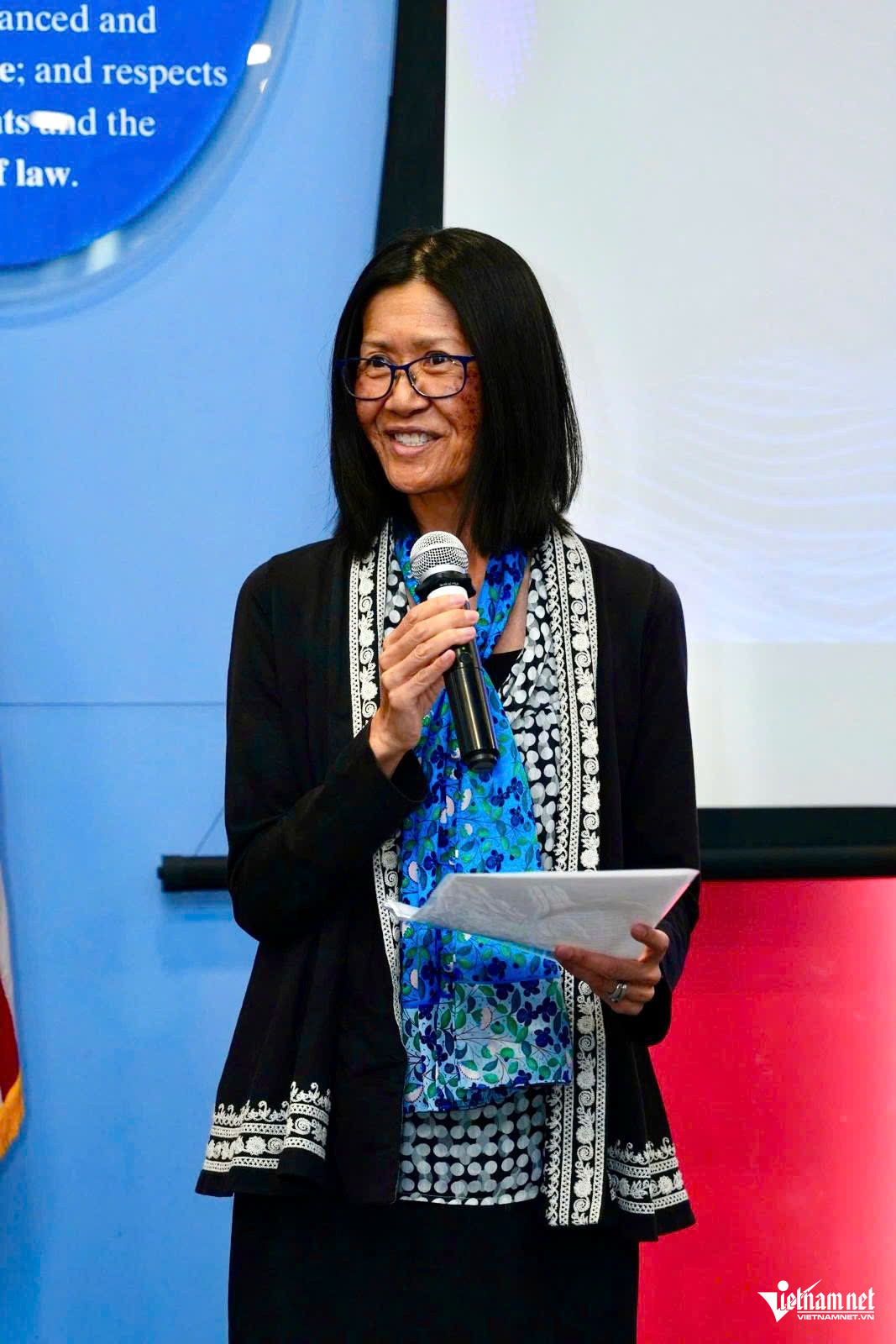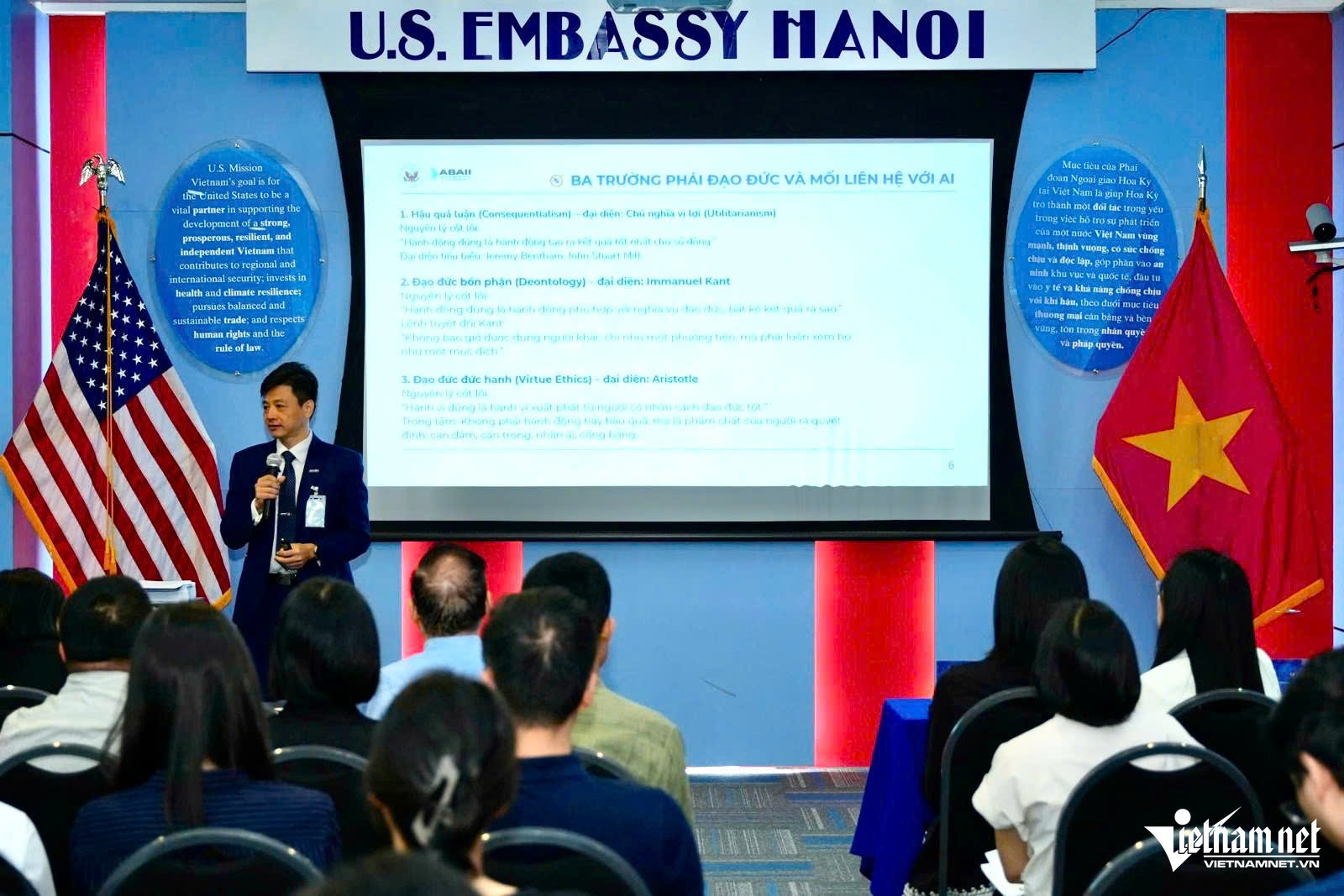On the morning of May 12 in Hanoi, Vietnam’s first intensive course on AI ethics for both public and private sector participants officially commenced. The course, funded by the U.S. Embassy, marks a significant step in promoting responsible AI development in the country.

Held over two days, from May 12 to 13, the “AI Ethics” course is the result of over a year of collaboration between the U.S. Embassy and the Institute of Blockchain and Artificial Intelligence Innovation (ABAII).
According to Le Linh Luong, Deputy Director of ABAII, the course directly supports the goals set in Decision No. 127/QD-TTg issued by the Prime Minister on January 26, 2021, which approved Vietnam’s national AI strategy through 2030. This strategy emphasizes enhancing capabilities in AI ethics, risk governance, and policy-making for experts, government officials, and developers.
Luong affirmed that this course is a critical move toward building a responsible AI ecosystem suited to Vietnam’s legal, cultural, and social context.
Elenita Tapawan, Director of U.S. Centers in Vietnam, explained that the course goes beyond algorithms and data. It strengthens participants’ capacity to make transparent, fair, and accountable decisions while placing humans at the center.
The course also reflects the growing U.S.-Vietnam partnership in education, innovation, and advanced technology - spanning from joint research initiatives to student exchanges.
In today’s world, where AI is becoming omnipresent, AI ethics is no longer optional - it is imperative. Without clear ethical principles, AI systems risk bias, privacy violations, data loss, and far-reaching social and legal consequences.
Through in-depth Q&A sessions with domestic and international instructors, participants - including technology engineers, AI developers, government officials, researchers, and educators - explored three core topics: ethical principles in AI development, responsible AI frameworks, and AI regulations in the U.S. compared to European AI policies.
Safe AI doesn’t happen by accident

As one of the instructors, Dao Trung Thanh, Deputy Director and Chair of the ABAII Faculty Council, emphasized: “AI has no conscience, emotion, or morality. Ethical values must be embedded into AI by humans.”
Using hypothetical scenarios in transportation, healthcare, and recruitment, Thanh guided learners through the dilemma of prioritizing legal versus ethical concerns in AI design and deployment.
He stressed that safe AI systems do not emerge naturally. The most fundamental principle in AI development is “do no harm.” He proposed seven ethical principles for AI, referencing global standards and practices.
These include: system safety and efficiency; data privacy; security, sustainability, and reliability; explainability; accountability; sustainable development and welfare; and human autonomy.
Thanh added that building effective, safe AI systems requires community and expert participation, prioritizing public safety, using only accurate and relevant data (especially in sensitive domains), and maintaining continuous testing and oversight. Transparent reporting and independent evaluation are also key to ensuring ongoing system integrity.
Speaking on the sidelines of the course, Nguyen Hong Minh, Network Development Director at InterEdu (Microsoft’s global education partner in Vietnam), emphasized the growing relevance of AI ethics. She noted that while AI-related training programs are booming, AI ethics often receives insufficient attention - despite being a critical foundation for responsible AI use.
She viewed the course as a valuable opportunity to learn and gain structured insights into AI ethics, particularly from the U.S. and other organizations actively implementing these practices.
“We are all still exploring AI, and we must approach it with a learning mindset - starting with small, right, and consistent steps,” she said.
Du Lam